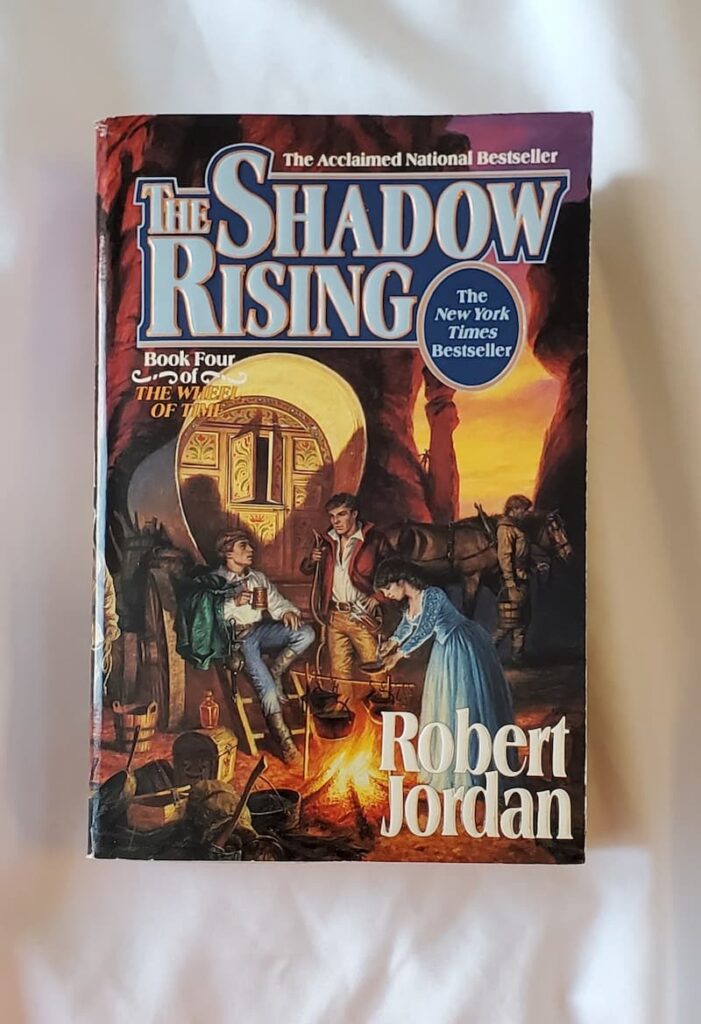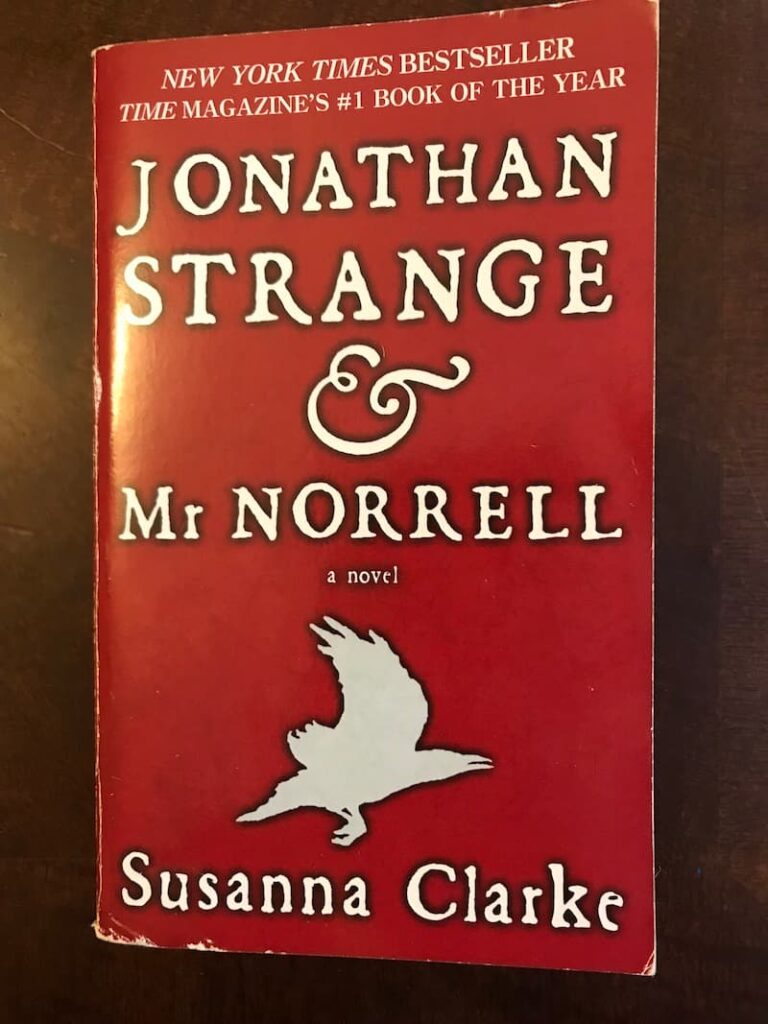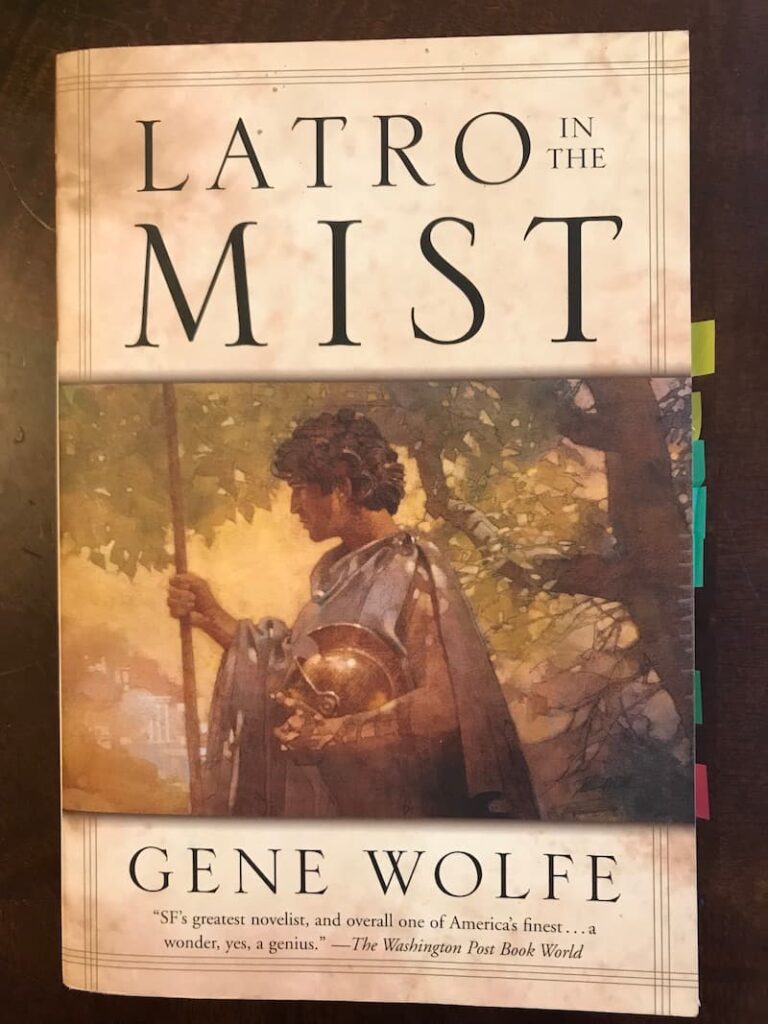Perhaps it all goes back to Corwin of Amber.
It certainly resonates with him. A man who has forgotten who he is – but the world hasn’t forgotten. And if he doesn’t remember, very quickly, he may never have a chance to remember.
Thankfully, Corwin knows enough at the moment of his waking out of the fog to know that he has forgotten something. There are heroes who do not even remember that.
Corwin is one of the most dangerous and important figures in his narrative world. He is a Prince of Amber, the realm from which all realms emanate – shadows cast from a single great source. So, not remembering who he is, is significant beyond himself.
The register of the story is a strange blend of mythic and personal as we walk with Corwin on his journey, listening as he narrates his adventures. We share in his frustrations and are swept up into supporting the pursuit of his wrath.

But no…
I can go further back in my memory than Corwin. There’s Oddler in the Sega Genesis Game Shining Force II. An old childhood favorite of mine. In the story, the character Oddler has no idea that he is actually Odd-Eye, one of the greater devils – and neither do the heroes.
He ends up traveling with his enemies for a time as a friend.
But eventually, he regains his memory and takes up the mantle of service to his former master. His end is tragic and full of regret: He wishes he could relive his life, but not as a devil.
Corwin is pragmatic and often ruthless. He seeks revenge and doesn’t seem to have much in the way of regrets. Odd-Eye is a thinly realized character, but the beats of his life are poignant.
(Later in my life, I played the classic game Star Wars: The Knights of the Old Republic. Memory loss from amnesia plays a critical role in the story, to say the least.)
Yet there are other approaches to the burden of memory in stories.
Reborn on the Wheel
In The Wheel of Time, Robert Jordan’s trio of Rand, Matt, and Perrin are all reborn heroes – but they don’t remember who they are. This is not a difficulty shared by their chief foes, who aren’t dead but imprisoned.
(Even when a Forsaken dies, if they aren’t killed the right way, the Dark One brings them back – memory intact. One of the perks of being on Team Bad Guy.)
This lack of memory is compounded by the fact that the people they are now, really are different than who they were. Rand isn’t Lews Therin, he just has him in his head – and his soul.

I read Jordan before Zelazny, so it’s likely that I became interested in this concept of characters with lost memories around then.
Jordan’s approach allows him to stretch the register of his storytelling from the backwoods farm life of Two Rivers to the final cosmic battle of Armageddon (okay, okay “Tarmon Gai’don”), allowing his protagonists to have experiences beyond their present life.
Still, our heroes are at the disadvantage because they don’t have the full picture (not so different than Corwin, though he doesn’t take so long to regain his powers).
(This Reborn Upon the Wheel approach is also at the heart of Obsidian Entertainment’s CRPG, Pillars of Eternity. The concepts here are developed in quite interesting ways, as souls become an instrumental currency of power that has a variety of uses.)
Working with the Element
Dipping into my own craft for a moment:
In high school, I ran a Dungeons and Dragons campaign where the reborn hero theme drove the action. (Clearly Jordan’s influence here.)
The players read accounts from the pen of one of their former selves. Artifacts from their past lives found them once again. The forces of darkness had a more complete picture of what was really going on.
But these efforts were largely immature and unrealized, sketches to give context to exciting combats.
Later on, I started a different campaign that involved a character who was fractured throughout time, and – in most instances – was either mad or had forgotten who he was. Again, the creative effort was messy, but the core idea has potential and could one day serve in the fashioning of a story.
At some point between the end of high school and 2010, another character emerged. First in D&D, and later on the page. I won’t spoil anything here because I actually have some 40,000 words drafted at the time of this writing.
But, I can share that from the first line of the effort, the question of memory and forgetfulness comes into view.
(You know, I hear, there’s even a short story of mine kicking about the internet, embedded in a postscript to my introductory newsletter, that touches on the theme of memory…)
The Cub Who Forgot He Was a King
Memory is powerfully bound up in identity. It’s why Mufasa’s spirit (yes, that Mufasa) invokes it in his appearance to Simba in The Lion King.
“You have forgotten me.”
“You have forgotten who you are and so you have forgotten me.” He calls Simba to remember, so that his son can be restored and the Circle of Life renewed.
Simba, by the time of Mufasa’s manifestation, has been working on moving on from the tragedy that drove him into exile. He has buried the past (no, not in the manner recommended by Kylo Ren in The Last Jedi…)
But his past comes seeking him out: first Nala, then Rafiki, and finally the spirit of his father. All call him to take up memory and become who he is meant to be. Who he is has something crucial to say about he who will be – but he has chosen to forget.
Simba’s forgetting has more to do with distraction and suppression than amnesia, but its effects are still formidable.
Without Simba’s return, the land will be destroyed under the reign of Scar, who long ago rejected the Circle of Life.
Lost in the Perilous Realm
In the animated film, Spirited Away, we encounter the classic faery power of enchantment that alters memory. Young Chihiro struggles to remember who she is the longer she remains in the perilous realm. Her parents, who have been turned into pigs, do forget their identity, becoming swine in body and mind.
Enchantment that suppresses, erodes, or even steals memory holds a special kind of terror. It is not the terror of the relentless hungry dead or the dragon’s terrible violence.
But the loss of self is a horrible death – and not always reversible. (The Death of Personality.)
There’s an echo here of Sir Orfeo (itself a Medieval echo of the myth of Orpheus’ quest to bring Eurydice back from the dead).
Or more recently, staying in the same tradition, Susanna Clarke’s Jonathan Strange & Mister Norrell.

Here the terrifying threat of malicious faery is wonderfully evoked.
The intensity is only heightened in that the malice of the Man with the Thistledown Hair is largely unnoticed by the only person who has any real chance of opposing him, even after he works great harm.
Indeed, it is only when Jonathan Strange finally beholds his enemy late in the story (and embraces madness) that the novel enters into its closing beats.
(There are also interesting workings of memory magic/enchantment in Rowling’s Harry Potter books: Gilderoy Lockhart’s memory charm, the Pensieve and extracted memories.)
The Soldier in the Mist & The Man Who Can’t Forget
Gene Wolfe’s Latro represents a different kind of hero with memory issues. Unlike Severian in The Book of the New Sun, who claims perfect memory, Latro forgets nearly everything when a new day arrives (he retains the power of speech and his skill at battle).
Cursed by Demeter, he wonders about witnessing all manner of supernatural visions that live on only in the scroll that he writes them upon. And he needs reminders to do even that, which means he must have faithful friends to keep him from losing himself in the mist.

So the curse comes with a kind of narrative consolation. We would not have the fantastical account that has come down to us through Wolfe, if Latro did not forget.
In counterbalance, the aforementioned Severian goes so far as to say that he is "oppressed" by memory. He relives experiences, sometimes becoming lost in them (as he does in The Claw of the Conciliator to the extent that he is unable to resist being taken captive).
Yet, having ‘perfect memory’ doesn’t make Severian’s written interpretations of his memory reliable (Wolfe is where I learned about unreliable narrators).
There is an old Chinese proverb:
“The palest ink is mightier than the strongest memory.”
Well. Perhaps not in Severian’s case. But his is the exception not the rule.
The Perils and the Consolations of Memory
Amnesia, rebirth, suppression, enchantment, curse, and perfect memory.
There are many burdens that may be set upon memory in the frame of a heroic story (not all of which I have covered here).
By focusing attention upon memory in the imaginative art, the workings of identity are also drawn more sharply into view – they are inherently interwoven with each other, however imperfectly.
Yet memory is an unreliable faculty even in day-to-day life. It plays tricks, rewrites events, hides things deep down. What did I have for breakfast today? What were the exact words you said to me when I met you on the street? What really happened that night on the lake?
What will we find, if we look down our own dark well?
"When I Was Younger..." If I lower the bucket through the fog, into the black waters, There is sometimes a breath Before the first, pale memory Clambers up over the rim And starts scrambling up the rope. Wind-blown vapor, gossamer figment, phantasm, swiftly taking on shape as it ascends – Weight and emotion And odor if it is strong – The past in bodied-world conjured, Infills by distorted echoes of what was, Elided, conflated moments, Gestalt simulacrum By alchemy made: chronicler, liar, prophet, Voiced by self in unmoored hours, Long-marinated emotion In fathoms of pressure, Volcanic-brewed, Sediment layered and compacted, Marked by Violence, folded, cracked, Rifted in earth’s dark fire, Arising to stand, starkly erect, and speak And riddle out its secret-treasure.
Want more words? See the horse below about a newsletter. Or scroll on down to make a comment.


Looking forward to reading your book. Miss our chats at GCTS. Blessings to you. Hope all is well
Thank you, brother. It’s good to hear from you – and those were good times at GCTS. We’re keeping the ship afloat around here. Hope you’re enjoying Alabama, and blessings to you as well.